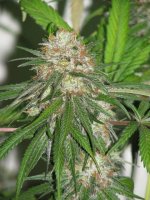Y
YosemiteSam
Thanks. I will crank it down to 800 and see what I see.
It makes sense based on what i have seen though and it ain't the first time that prevailing wisdom may be wrong.
It makes sense based on what i have seen though and it ain't the first time that prevailing wisdom may be wrong.






